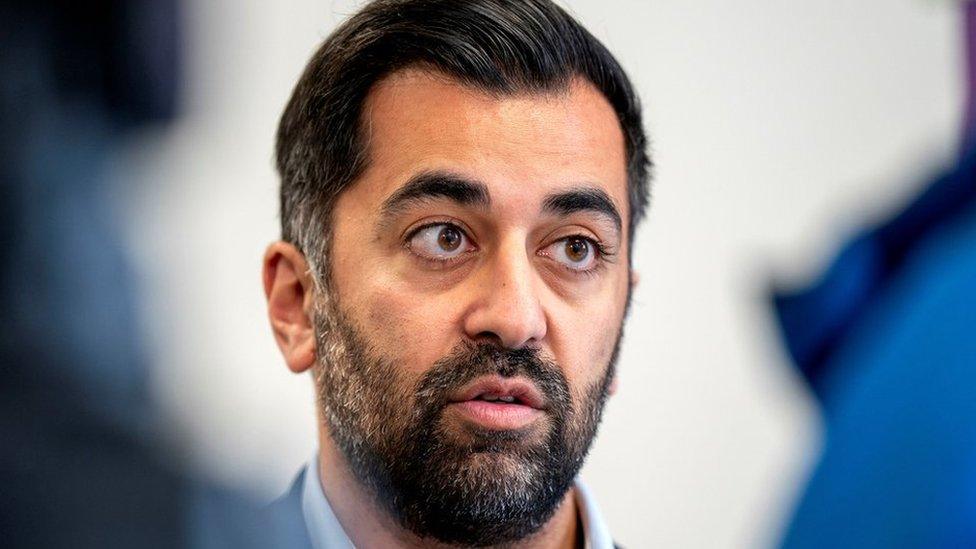Yousaf denies misleading parliament over WhatsApps
- Published
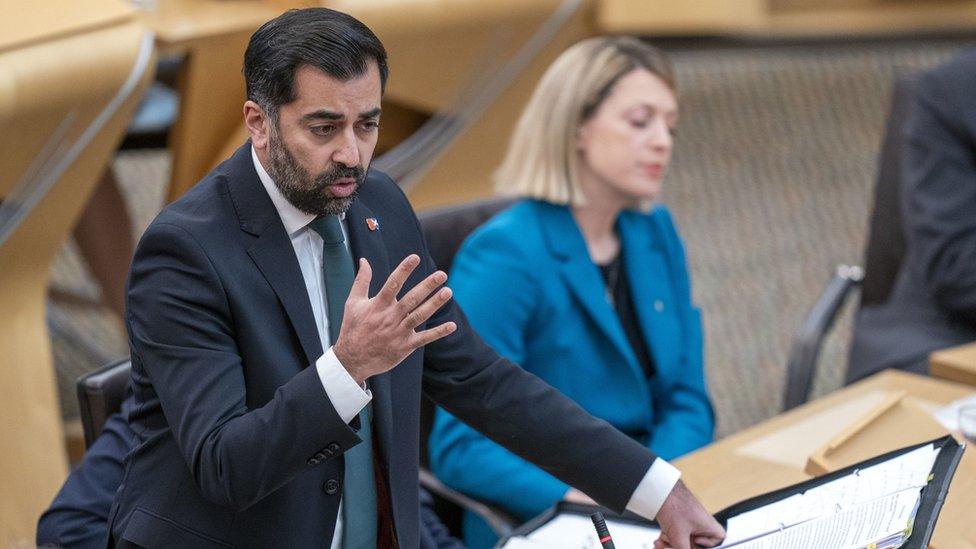
First Minister Humza Yousaf said the government was first asked for group messages in September
Humza Yousaf has denied misleading parliament over government WhatsApp messages sent during the pandemic.
The first minister and his deputy Shona Robison told MSPs last week they were asked to submit group messages to the UK Covid Inquiry in September.
But a timeline published by Ms Robison on Wednesday stated ministers had first been asked to release WhatsApp files seven months earlier in February.
Opposition leaders accused Mr Yousaf of a cover up.
He rejected this but said his government had interpreted requests for messages from the UK inquiry "too narrowly".
Speaking at First Minister's Questions, Scottish Tory leader Douglas said the published timeline and the first minister's previous statements were "clearly contradictory".
He said Mr Yousaf's government should be "ashamed" for treating the parliament with "contempt".
"They have been caught red-handed in a cover-up," Mr Ross told MSPs. "They knowingly told this chamber that were false."
The first minster said it was "not the case" that he and Ms Robison had misled parliament.
He apologised "unreservedly" for any distress caused to bereaved families.
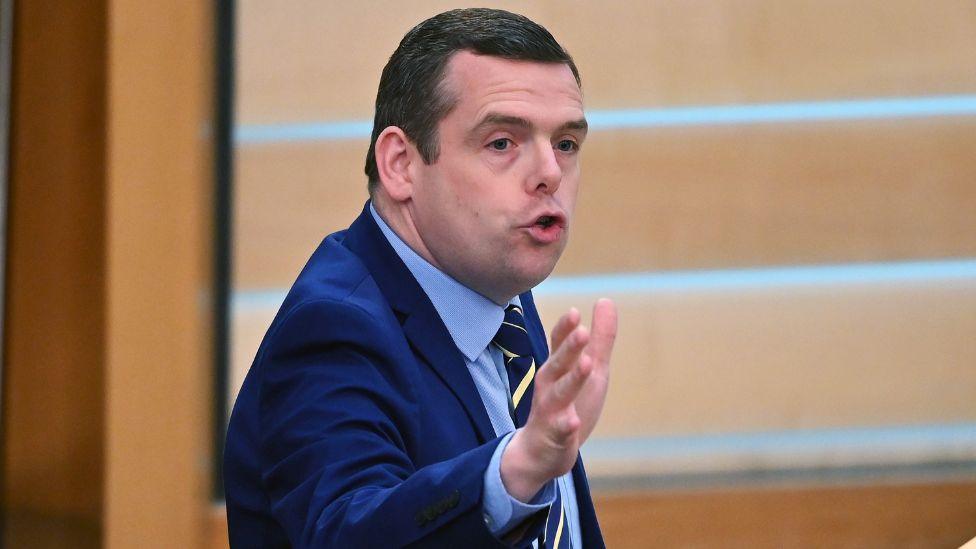
Scottish Tory leader Douglas Ross says the first minister was caught "red-handed"
The first minister said Ms Robison was referring to the "initial" request from the inquiry in her statement last week, but that the government interpreted that request, made in February, "too narrowly".
"What we have done to take corrective action is to make sure is we submitted 14,000 messages," Mr Yousaf said.
"What I have done of course is make sure I handed over messages in unredacted form."
Scottish Labour leader Anas Sarwar said Mr Yousaf had "lost control" of his government and misled parliament more than once.
He said the UK inquiry had raised concerns that legal advice given to the Scottish government had not been submitted in full and in some cases was almost entirely redacted.
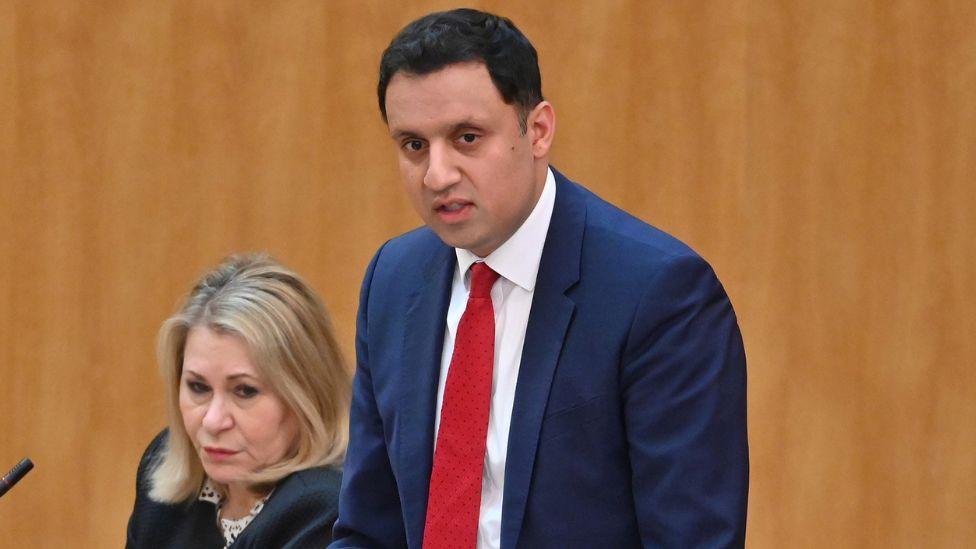
Scottish Labour leader Anas Sarwar
The Labour chief accused the government of "hiding" the legal advice and not co-operating with the inquiry.
Mr Yousaf said he disagreed "wholeheartedly" with suggestions the government had not co-operated and said he expected all evidence, including legal advice, to be handed over when requested.
He told MSPs any redaction would have been made due to "issues around legal privileges".
Mr Sarwar also said it had been reported that non-government emails had been used by senior figures during the pandemic and asked for assurances that such evidence would be handed over.
Mr Yousaf said: "Where we can do so in this inquiry I expect every single document, including legal advice, to be handed over."
Evidence timeline
Both the first minister and his deputy Ms Robison told MSPs last week that when the UK inquiry asked in June for details of the WhatsApp groups, it did not request the messages specifically.
"The messages were asked for in September, just a matter of weeks ago," the first minister said in parliament.
But Ms Robison, making a point of order in parliament on Wednesday, said the UK inquiry had asked the Scottish government to set out the timetable of requests "in more detail".
In a written statement to parliament, she said the Scottish government was initially asked on 4 November 2022 about WhatsApps and other "informal messaging systems".
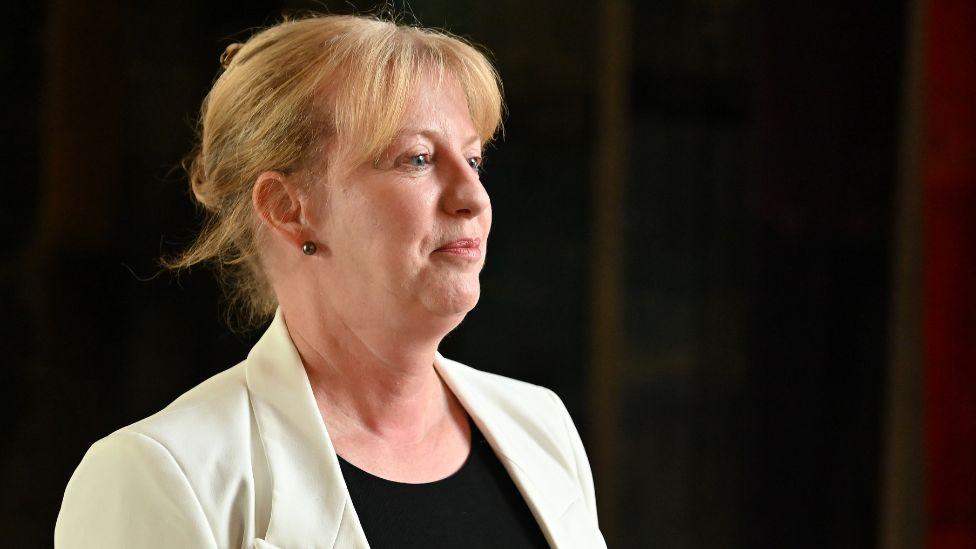
Deputy First Minister Shona Robison said the UK Covid Inquiry asked the government to set out the timeline in detail
The inquiry then made a formal request for WhatsApp messages relating to the pandemic response and decision-making on 2 February.
The government did not provide WhatsApp messages in its subsequent responses, instead arguing "key decisions and decision-making were recorded on the Scottish government corporate record".
The inquiry asked for further information about WhatsApp groups "concerned with the Covid-19 response" in June, according to Robison.
She added that once information concerning those groups was provided, the inquiry then asked in September for those messages to be handed over.
Aamer Anwar, lead solicitor for the Scottish Covid Bereaved, said: "The Scottish government's continued failure to provide clarity, the changing timelines, the redundant excuse of 'confidentiality' inflames the belief that they are obstructing the search for truth."


Humza Yousaf has held his hands up to the Covid inquiry, admitting that his government took "too narrow" a reading of their requests for access to messages.
It does feel like ministers have had a ticking off from the inquiry, after Shona Robison published the timeline of requests at their behest and Mr Yousaf followed up with an apology.
The first minister clearly wants to make good with the inquiry. But his admission does not extend to the opposition's claims that he misled parliament.
Rather, the "narrow reading" that he has admitted to actually helps him to argue that he was referring to very specific messages and groups when he told MSPs that the request was not made until September.
It's important to remember that the inquiry is effectively acting on behalf of families bereaved in the pandemic - Mr Yousaf is mindful that he needs to be seen to be cooperating with them.
And while "misleading parliament" is a dangerous charge from the opposition, that risks sinking into a he-said-she-said parliamentary spat. The judgement of the independent inquiry is far more important to Mr Yousaf than that of his political opponents.

The UK inquiry asked to see the WhatsApp messages of 70 officials, medical chiefs, ministers and former ministers, and identified 137 messaging groups that could contain relevant information.
However, the inquiry's counsel, Jamie Dawson KC, said last month that "very few" of the messages it was interested in appeared to have been retained.
The Scottish inquiry issued a "do not destroy" order at the beginning of August 2022, meaning it could be an offence for witnesses to have deleted Covid-related messages after that date.
In June this year, Mr Yousaf told MSPs that all requested material would "absolutely" be handed over to the Covid inquiries in full.
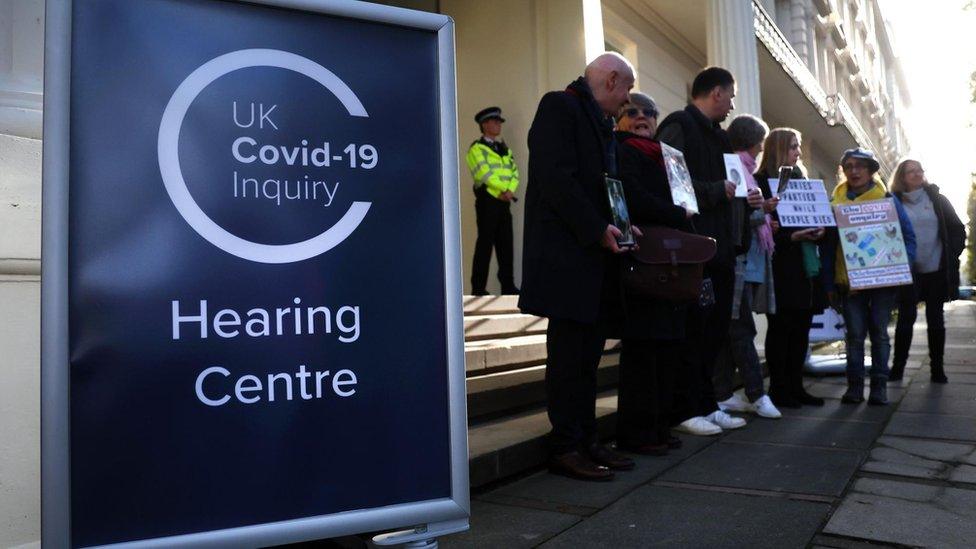
The Scottish government handed over more than 14,000 messages on Monday. It came after senior members of the Scottish government's leadership team from the pandemic - including Ms Sturgeon and ex-deputy first minister John Swinney - were accused of deleting messages.
Both have vowed to comply with the inquiry.
The government said it required a formal request under Section 21 of the Inquiries Act 2005 before it was able to submit the 14,000 messages, due to data privacy concerns.
This "corporate" submission did not include minister-to-minister conversations and was restricted to conversations of three or more people involving at least one civil servant.
Mr Yousaf also made his final submission to the UK inquiry on Monday, according to the government. It is understood to run to around 100 pages.
He has handed over Covid WhatsApp messages which he is said to have retrieved from an old phone handset.
- Published2 November 2023
